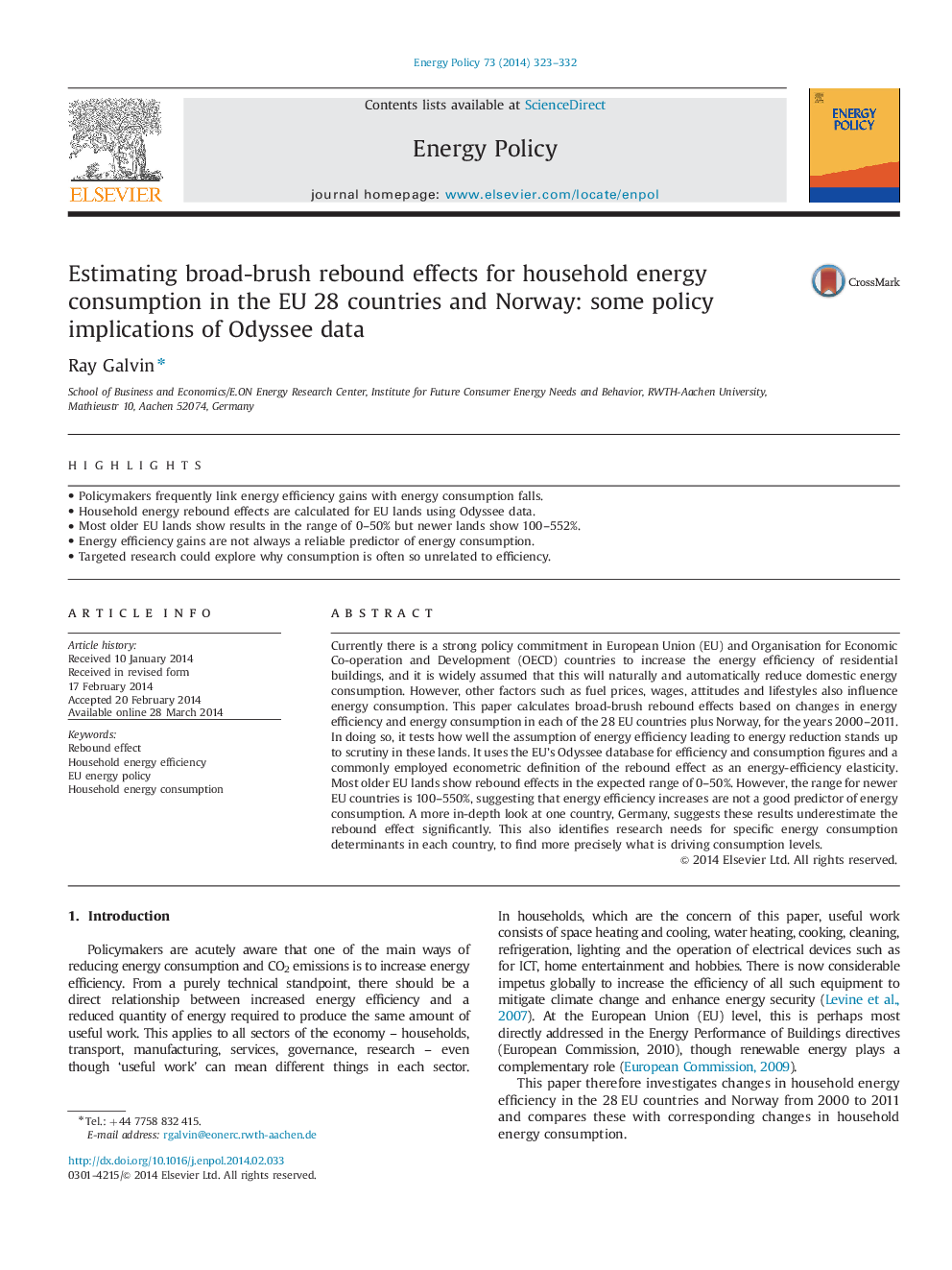ترجمه فارسی عنوان مقاله
برآورد اثرات گسترده ریباند برای مصرف انرژی خانگی در 28 کشور اتحادیه اروپا و نروژ: برخی از پیامدهای سیاسی داده Odyssee
عنوان انگلیسی
Estimating broad-brush rebound effects for household energy consumption in the EU 28 countries and Norway: some policy implications of Odyssee data
| کد مقاله | سال انتشار | تعداد صفحات مقاله انگلیسی |
|---|---|---|
| 42940 | 2014 | 10 صفحه PDF |
منبع

Publisher : Elsevier - Science Direct (الزویر - ساینس دایرکت)
Journal : Energy Policy, Volume 73, October 2014, Pages 323–332
ترجمه کلمات کلیدی
اثر جهش - بهره وری انرژی خانگی - سیاست انرژی اتحادیه اروپا - مصرف انرژی خانگی
کلمات کلیدی انگلیسی
Rebound effect; Household energy efficiency; EU energy policy; Household energy consumption

